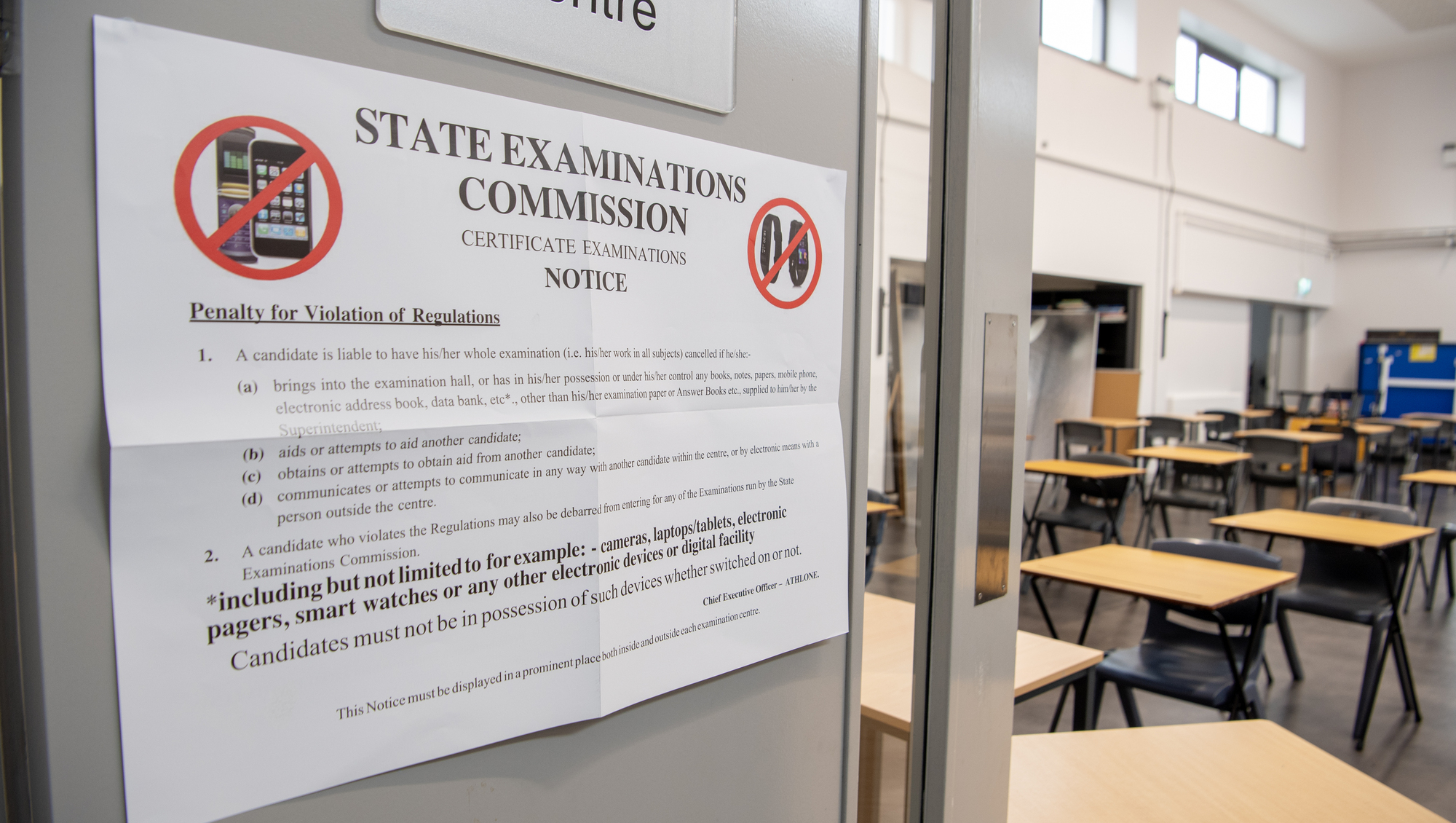Health
Leaving Cert 2025 Marks Shift Towards Pre-Pandemic Grading Norms

The State Examinations Commission (SEC) has initiated a gradual return to standard grading for the 2025 Leaving Cert, marking a significant shift after years of pandemic-related grade inflation. The SEC’s approach, while still involving upward adjustments, aims to align results more closely with pre-pandemic standards, specifically those from 2019. This year, exam authorities have increased more than half of all grades, yet with less intensity than in previous years.
The education sector has been navigating the aftermath of the pandemic, which saw a dramatic rise in Leaving Cert results during 2020 and 2021. Since then, results have remained elevated, prompting concerns about academic standards and fairness in college admissions. The SEC has been cautious in its approach to addressing this issue, striving to avoid a sudden and unpopular return to lower grading standards.
Adjustments Reflect Changing Standards
In a statement last year, then Education Minister Norma Foley announced the phased transition back to normality, describing the process as “modest” and “gradual.” This year’s results are expected to be “broadly midway” between the inflated grades of the past few years and those from 2019. The target is to ensure that results remain at least 5.5 percentage points above 2019 levels.
The SEC has implemented a post-marking adjustment process, which was applied uniformly across all subjects. This statistical intervention added average marks of 6.8% to corrected scripts, benefiting approximately 229,275 grades out of a total of 438,000. This adjustment, while indicative of a move towards normalcy, continues to reflect high proportions of boosted grades, with around 52% of all grades issued this year receiving an upward adjustment.
Despite this gradual return to normal, the percentage of students achieving top grades remains significantly elevated. For instance, 11.7% of higher-level grades this year were awarded the highest classification, known as H1, down from 14.3% in 2024 but still remarkably higher than the 5.9% recorded in 2019.
Implications for Future College Admissions
With college entry still heavily reliant on Leaving Cert results, the SEC faces the challenge of balancing the need for academic standards with the reality that a sudden deflation of grades could disadvantage current students compared to their peers from 2020 to 2024. This situation has made college admissions particularly competitive, with many students missing out on their preferred courses despite achieving high marks.
The SEC’s chairwoman, Jacinta Stewart, emphasized the importance of transparency in the grading process. She encouraged students to access the Candidate Self Service Portal for detailed information about their results, including component marks and the impact of the post-marking adjustment.
As students prepare for the first round of college offers scheduled for next Wednesday, the repercussions of this year’s results on CAO cut-off points remain uncertain. The interplay of reined-in grades, demographic trends, and varying demand for courses presents a complex scenario for both students and educational institutions.
The SEC’s efforts highlight a critical turning point in the education system, as it seeks to restore confidence in the grading process while ensuring fairness in college admissions. The gradual adjustments may pave the way for a more balanced assessment landscape, ultimately benefiting future generations.
-

 Top Stories3 months ago
Top Stories3 months agoTributes Surge for 9-Year-Old Leon Briody After Cancer Battle
-

 Entertainment4 months ago
Entertainment4 months agoAimee Osbourne Joins Family for Emotional Tribute to Ozzy
-

 Politics4 months ago
Politics4 months agoDanny Healy-Rae Considers Complaint After Altercation with Garda
-

 Top Stories4 months ago
Top Stories4 months agoIreland Enjoys Summer Heat as Hurricane Erin Approaches Atlantic
-

 World5 months ago
World5 months agoHawaii Commemorates 80 Years Since Hiroshima Bombing with Ceremony
-

 Top Stories3 months ago
Top Stories3 months agoNewcastle West Woman Patricia Foley Found Safe After Urgent Search
-

 Top Stories5 months ago
Top Stories5 months agoFianna Fáil TDs Urgently Consider Maire Geoghegan-Quinn for Presidency
-

 World5 months ago
World5 months agoCouple Convicted of Murdering Two-Year-Old Grandson in Wales
-

 World5 months ago
World5 months agoGaza Aid Distribution Tragedy: 20 Killed Amid Ongoing Violence
-

 World5 months ago
World5 months agoAristocrat Constance Marten and Partner Convicted of Infant Murder
-

 Top Stories4 months ago
Top Stories4 months agoClimbing Errigal: A Must-Do Summer Adventure in Donegal
-

 Top Stories4 months ago
Top Stories4 months agoHike Donegal’s Errigal Mountain NOW for Unforgettable Summer Views









